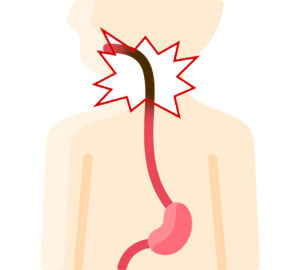Growing up I had what I can only assume is a universal experience amongst fledgling coffee drinkers: I was told that coffee would stunt my growth. I was never going to get pulled out of the stands at Reunion Arena to suit up for the Dallas Mavericks thanks of my coffee-induced diminutives, which given the general disrepair of the franchise at the time was a more real possibility than perhaps I realized.
Even so, I was willing to put my basketball career on the line because I just wanted to have coffee, like all the grown-ups do. Thankfully, my mom was good at parenting (or bad at it, depending on which side you stand) and let me at the ripe old age of five have my milk with just a splash of coffee. With each passing year, the milk took up less and less of the cup until I was a six-foot-tall black coffee drinker.
And you know what? Mama’s decision to let me have coffee is backed by science, who have found no correlation between coffee consumption and height.
As reported by Discover Magazine, the concerns about growing children consuming caffeine are based partially in science, but primarily in marketing. The article notes that some studies have found caffeine consumption can lead to the body absorbing less calcium, which in children could “negatively affect body bone mineral gain or hip bone density, thus inhibiting growth.” Though the actual difference the studies found were shown to be negligible.
To find the real culprit behind this old wives’ tale, according to Smithsonian Magazine, you have to go all the way back to the front half of the 20th century. In the early 1900s, Postum—a caffeine-free instant alternative to coffee made of roasted wheat bran and molasses—began running ads “claiming coffee should never be drunk by children, including false claims about its health effects.” One ad in 1933 went so far as to explicitly state “drinking coffee would hamper a child’s growth.” None of these claims by Postum were backed by science, of course. Such baseless claims wouldn’t find footing in the erudite, fact-based 21st century, but those were different times.
So what’s the truth of the matter? Did Manute Bol grow to be 7’6” by refraining from even minute bowls of coffee? According to Discover, 1998 study from the Penn State College of Medicine looked at this very issue. For the study, researchers tracked the caffeine consumption habits of 81 female subjects for six years, between the ages of 12 and 18, to see how it affected their growth. The subjects were divided into three categories based on their mean daily caffeine consumption, and when comparing the groups at the completion of the study, researchers found “no correlation between caffeine intake and the average bone gain or height.” In fact, no such adversarial effect has been found linking coffee and height.
The article does note, however, that children shouldn’t be consuming caffeine willy nilly. Studies have found caffeine consumption can affect blood pressure, heart rate, sleep patterns, and anxiety in children. Per Discover, “the American Academy of Pediatrics generally discourages kids from consuming caffeine,” with Canada “recommending kids under the age of four avoid caffeine, and providing limits to daily caffeine consumption based on age and body weight.”
So good news, kids! You don’t have to decide between a promising basketball career and a nice warm cup of the good stuff. In fact, if you practice hard enough, you may just be the next Jimmy Butler.
Zac Cadwalader is the managing editor at Sprudge Media Network and a staff writer based in Dallas. Read more Zac Cadwalader on Sprudge.
 Latest News
Latest News Press Releases
Press Releases Podcasts
Podcasts Newsletter
Newsletter Event Calendar
Event Calendar Brew Guides
Brew Guides City Guides
City Guides Coffee Recommendations
Coffee Recommendations Gift Guides
Gift Guides Sprudge Maps
Sprudge Maps Cafe Spotlights
Cafe Spotlights Find A Cafe
Find A Cafe Add A Cafe
Add A Cafe Sprudge Shop
Sprudge Shop Build-Outs Of Coffee
Build-Outs Of Coffee Coffee Design
Coffee Design On The Menu
On The Menu Ready-To-Drink Coffee
Ready-To-Drink Coffee Explainers
Explainers Sprudgie Awards
Sprudgie Awards Sprudge Design Awards
Sprudge Design Awards Sprudge Twenty
Sprudge Twenty Advertise on Sprudge
Advertise on Sprudge Contact
Contact Book: The New Rules of Coffee
Book: The New Rules of Coffee Book: But First, Coffee
Book: But First, Coffee
































